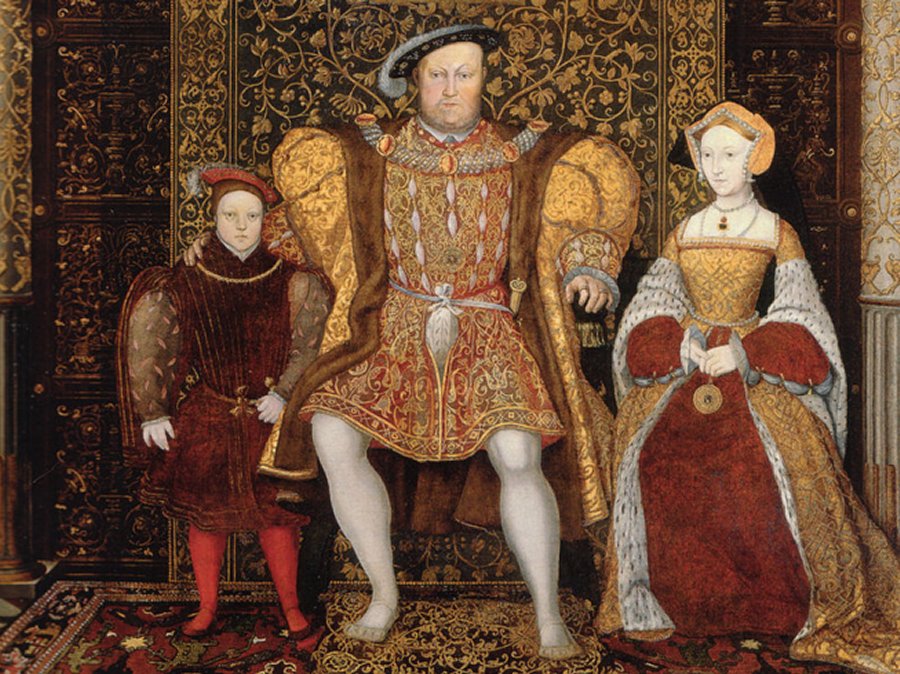MessageToEagle.com – On April 22, in 1509, Henry VIII took the crown as the ruler of all England.
Henry VIII is best known for his six wives, whose fate is described in the famous rhyme: “Divorced, Beheaded, Died: Divorced, Beheaded, Survived”.
He was very controversial figure. Henry was the first heir to the throne whose education was influenced by the Renaissance, and he was already an accomplished writer and linguist when he took the crown.

He succeeded his father Henry VII and found a wife – Catherine of Aragon, the widow of his elder brother Arthur. His marriage was rather an act of alliance than love.
During the period 1513–29 Henry pursued an active foreign policy, largely under the guidance of his Lord Chancellor, Cardinal Wolsey, who shared Henry’s desire to make England stronger.
However, Wolsey found it impossible to get the king a divorce from Catherine of Aragon; therefore, he was stripped of office and replaced by Thomas More in 1529.
By this time Henry’s policy had become dominated by his desire to divorce Catherine because she was too old to give him an heir and he was determined to marry Anne Boleyn.
At first there seemed a possibility that the divorce might be granted. The papal legate journeyed to England to hear the case, but Catherine appealed direct to the pope and the court was adjourned. The position was complicated by the fact that Charles V, Catherine’s nephew, controlled Rome. Henry then proceeded to act through Parliament, and had the entire body of the clergy in England declared guilty of treason in 1531.
Finally, the clergy agreed to recognize Henry as supreme head of the church in England and his marriage to Catherine was annulled.
Henry VIII married Anne Boleyn in 1533. In 1536, Anne Boleyn was beheaded supposedly for adultery.
Henry’s third wife, Jane Seymour, died in 1537. He married Anne of Cleves in 1540 in pursuance of Thomas Cromwell’s policy of allying with the German Protestants, but rapidly abandoned this policy, divorced Anne, and beheaded Cromwell. His fifth wife, Catherine Howard, was beheaded in 1542, and the following year he married Catherine Parr, who survived him. Henry ended his reign with the reputation of a tyrant.
But the power of the crown had been considerably strengthened by Henry’s ecclesiastical policy, and the monastic confiscations.
Indeed, King Henry VIII did not like church; he abolished Papal rule in England and reduced the power of the clergy.
He was prepared for a relationship with Rome but – under his own terms.
MessageToEagle.com






